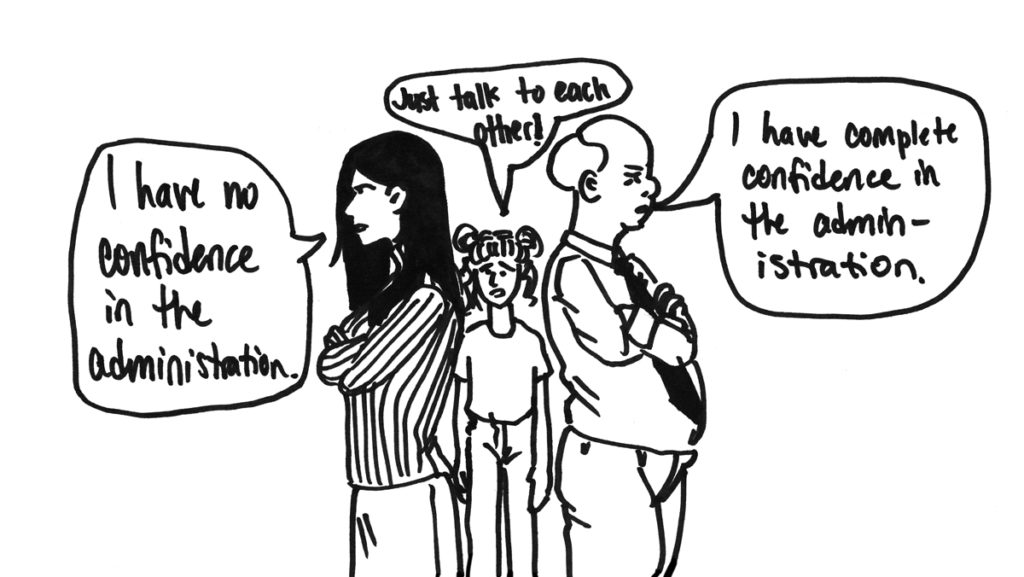In November 2015, over 1,000 students walked out in protest against then-Ithaca College President Tom Rochon. Many students claimed no confidence in Rochon’s leadership after he failed to respond to multiple events involving racial discrimination. Following these events, students, faculty and staff took a vote of no confidence in Rochon’s leadership. Rochon then stepped down, and most of his administration followed.
Fast forward to January 2020, and the current concerns on campus somewhat mirror those from 2015, although the level of tension is nowhere near as high. There are reports and anecdotes of microaggressions occurring in classrooms across disciplines. It is clear that the issues of microaggressions and the administration not knowing how to handle them were problems in 2015, and the very same problems persist five years later.
At the All-Faculty Meeting on Jan. 30, there was a concern raised by faculty members, particularly those in the Roy. H Park School of Communications, that the administration is not providing enough guidance on how to solve the problem of microaggressions in the classroom.
This issue came to a boil when Janice Levy, professor in the Department of Media Arts, Sciences and Studies, spoke out in frustration against the administration’s treatment of Park School faculty, especially in discussions involving incidents of microaggressions in the classroom. After Levy’s comments, the meeting apparently became chaotic, with faculty speaking over each other.
Some faculty members in the Park School felt La Jerne Cornish, provost and senior vice president for academic affairs, had a condescending tone and did not provide a plan for how to address microaggressions in the classroom. Cornish said she felt Levy’s comments derailed the All-Faculty Meeting.
There is clearly a breakdown in communication between the faculty and the administration, with each side leaving more upset than before from meetings that are supposed to facilitate conversations about mending the campus climate. The issue of microaggressions at the college is systemic, and it needs to be addressed as such.
The people who lose the most in these conflicts between faculty and the administration are students. Every day, students are pushed to involve themselves in dialogues, subjects and teachings that might exist outside their experiences and comfort zones. Perhaps it is time for faculty and administrators to step back, examine the way they talk to each other and push themselves to learn beyond their comfort zones as well.
As people in positions of power, it is necessary that faculty members take responsibility for any microaggressions that happen in their classrooms. Administrators need to listen to the concerns of the faculty and reevaluate their own communication style. It is time to move past the current divisiveness and start vital conversations about the college’s financial health and enrollment challenges.
The only way for the community to grow is through open dialogue and willingness to learn. If faculty and the administration continue to refuse to partake in both, the college’s challenges will continue to grow, and both administrators and faculty will be at fault.














